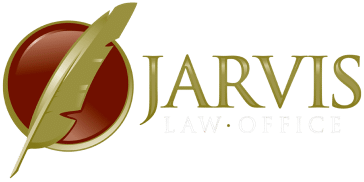Charitable Planning Lawyer Ohio
Your Ohio Charitable Planning Lawyer
What Is Charitable Giving?
How Do I Make a More Substantial Charitable Gift?
If you intend to make a charitable donation of some size before or after you pass away, you should speak with an estate planning attorney at Jarvis Law Office, P.C., who is experienced with investments, property, tax, and all manner of charitable transfers. Jarvis Law Office, P.C. can ensure that your gift transfer is set up properly — both from estate tax and philanthropic perspectives.
- Planned gifts can provide significant tax benefits and also even lifetime income for you and your family.
- Jarvis Law Office, P.C. will outline charitable giving strategies that align with your values and financial objectives.
- Among the options we’ll explore with you include charitable trusts and charitable gift annuities.
- Many people make planned gifts as testamentary bequests to charities in their wills or revocable living trusts.
- Life insurance is a common means to leverage charitable giving.
What Are the Benefits of Charitable Giving?
- Provide inheritances for heirs while decreasing their tax liability.
- Reduce your ordinary income taxes and avoid capital gains taxes on appreciated assets through charitable deductions.
- Create a charitable legacy for future generations.
What Are a Few Ways I Can Give?
A Life Income Gift
This approach provides a future income stream for the charity while also providing a tax deduction and current income payments to you and your family. This gift can be flexible with fixed, variable, or deferred payments.
Bequests and Retirement Plans
You can name your charity as a beneficiary of your will or revocable living trust — or name the charity as a beneficiary of a retirement plan, such as an IRA, 401(k), 403(b), or other retirement fund. This can be a win-win, especially when it comes to retirement plan assets. There are no income or estate taxes on any retirement plan assets left directly to a charity.
Charitable Lead Trusts
This trust can be used to leverage the eventual transfer of appreciating assets to family members in light of current and future estate and gift tax consequences. Essentially, this approach provides immediate support to your charity through fixed payments for a specified period. At the end of the term, the trust will revert to your loved ones by transferring all of its remaining assets to them with reduced or no estate and gift tax burdens.
Retained Life Estate
Giving real estate (e.g., a home or farm) to your charity can generate a current income tax deduction, but you still retain the right to use the property during your lifetime.
Again, these are just a few (of many available) planned giving strategies you can use to make your gift. Charitable giving is a great way to support your favorite non-profit interests. Even better, planned giving can help you make sizeable gifts that can benefit both charity and your family.
Whether you’re looking to reduce taxes, leave a lasting legacy, or align your financial goals with your values, Jarvis Law Office, P.C. can explore these and additional strategies with you, depending on your unique circumstances.
Contact us today to discover how we can help you make a meaningful difference for future generations while achieving your financial objectives.

Request A Consultation
Please fill out the short form below. Then click the schedule your consultation button. You will be directed to a calendar to select a day and time that works for you!
*Required Fields
- Your Information Is Safe With Us
We respect your privacy. The information you provide will be used to answer your question or to schedule an appointment if requested.
or Call Now


Why Choose Jarvis Law Office?
- Free Consultation – Discuss your needs during a complimentary consultation with Jarvis Law Office. We can consult virtually, so you don’t have to visit the office.
- High Satisfaction Rate – Our clients have left reviews praising our knowledge, experience, and helpfulness. We have a track record for high-level service and customized solutions.
- Focused Practice Areas – We focus exclusively on the area of elder law.
- Three Convenient Locations – We have offices in Lancaster, St. Clairsville, and Dublin, making it easy to reach clients throughout Central and Southeast Ohio.
- Free Events – Our firm offers free events for Ohio residents. These events cover essential estate planning issues, such as how to pay for long-term care while protecting your assets.
- Family First – We’re focused on family. Our family (yes, we employ several family members in the firm) is protecting yours.
Testimonials
I have worked with Emily at Jarvis Lancaster location and she is very personable, friendly and has “Great” customer service. I would recommend Jarvis Lancaster location to anyone who needs assistance with elder care planning!

Contact Us
Contact Us Today For Case Evaluation
*Required Fields
- Your Information Is Safe With Us
By ticking the consent above and clicking “Contact Us Today”, I consent to join the email list and receive SMS from Jarvis Law Office. Message and data rates may apply. Message frequency varies. More details on this are in our Privacy Policy and Terms and Conditions. Text “HELP” for help or contact us at 740-746-1260. Text “STOP” to cancel.
Frequently Asked Questions
A charitable remainder trust (CRT) is a type of trust that provides you or other named individuals with a stream of income for a life or a specified period. After the term ends, the remaining assets go to one or more charities. CRTs offer significant tax benefits, including an income tax deduction and potential savings on capital gains taxes.
A charitable lead trust (CLT) is the opposite of a charitable remainder trust. In a CLT, one or more charities receive an income stream for a set period, after which the remaining assets are transferred to non-charitable beneficiaries, such as family members. This arrangement provides immediate support to charities while offering estate and gift tax deductions.
An experienced estate planning attorney like those at Jarvis Law Office can help integrate charitable giving into your estate plan through various instruments, such as bequests in a will, charitable beneficiary designation through retirement plans or life insurance policies, establishing charitable trusts, or through donor-advised funds. Each method has unique benefits and can be tailored to meet your specific financial goals and charitable intentions.
Donor-advised funds (DAFs) offer flexibility, ease of administration, and tax advantages. You can make a charitable donation to a DAF and immediately receive an income tax deduction, then recommend grants to your favorite charities over time. DAFs are an effective way to manage your charitable giving and involve future generations in philanthropy.
Please note that the information provided here is general in nature and should not be considered legal advice. It is recommended to consult with a special needs trust attorney from Jarvis Law Office to obtain personalized advice based on your specific circumstances.
Professional Associations






Recent Blog Posts
- March 4, 2024
- February 2, 2024


